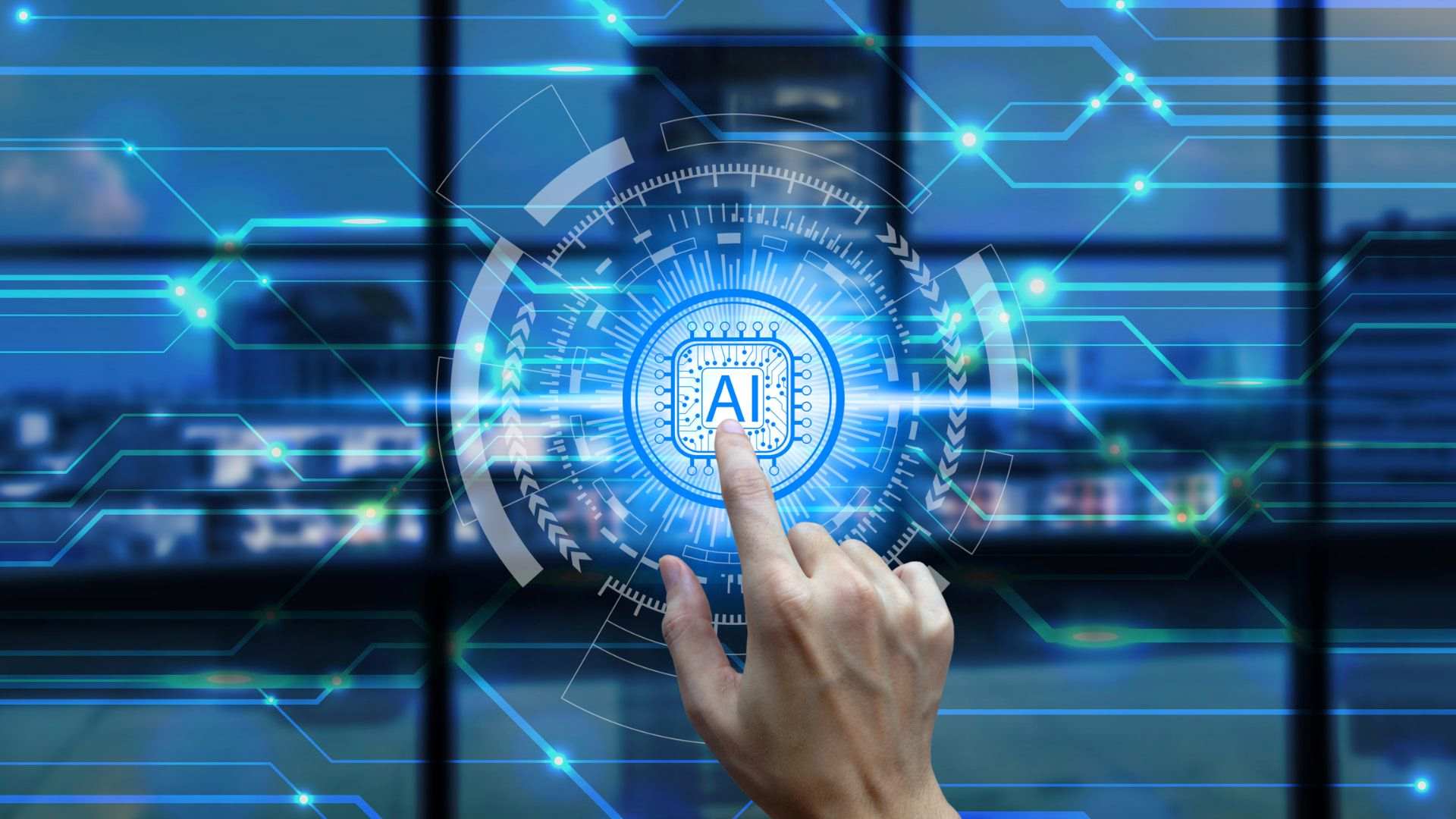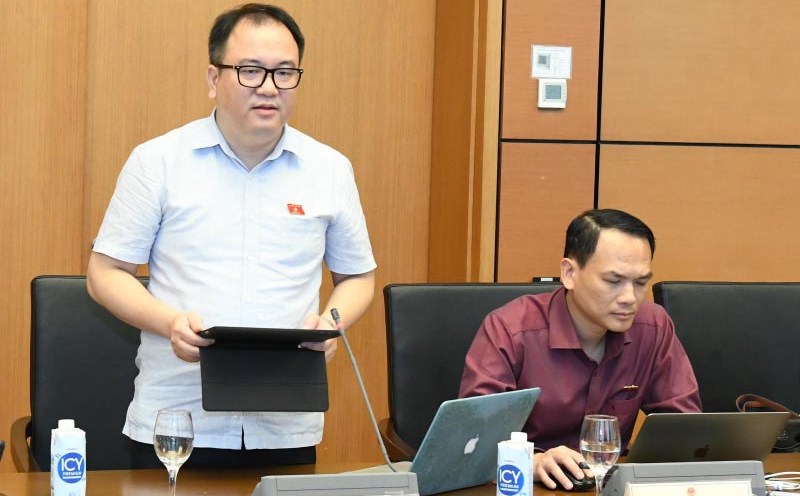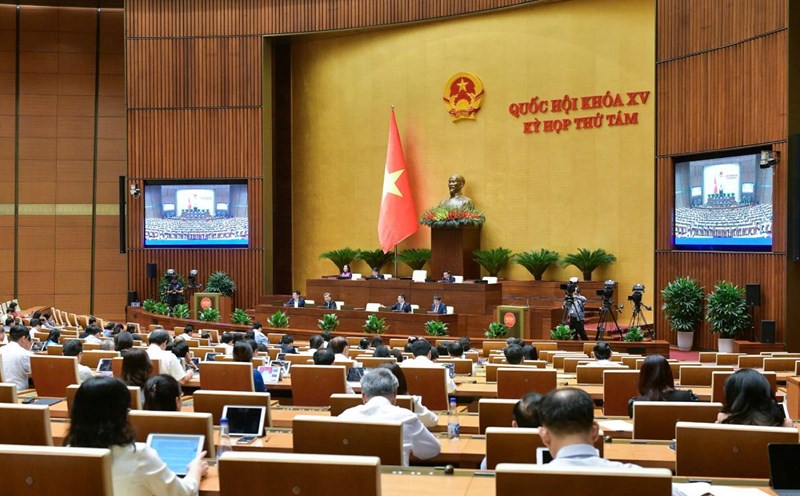Superior productivity and optimization
AI has proven its power in the manufacturing industry by automating and making processes smarter. Global leaders such as Siemens and General Motors (GM) are pioneering the use of AI to improve efficiency. For example, Siemens uses AI in equipment maintenance, reducing downtime by up to 50%, while GM uses generative design to create auto parts that are 40% lighter but 20% more durable.
Beyond improving performance, AI optimizes supply chain management. Intel uses AI to predict disruptions, adjust production schedules, ensure stability, and reduce logistics costs. These applications offer clear benefits in improving product quality, saving costs, and meeting market demands quickly.
Vietnamese Enterprises on the AI Journey
In Vietnam, the application of AI is becoming increasingly popular and is considered an inevitable step in the digital transformation process. Talking to PV of Lao Dong Newspaper, Mr. Tran Viet Quan, founder of Tanca.io - a human resource management platform - shared: "100% of departments in the company are applying AI to the work process. The application rate has reached 30% and is expected to increase to 60-70% in the next few years." AI not only optimizes the programming process but also supports content creation, sales and marketing, helping to increase work productivity by 8-10 times.
Similarly, Mobile Viet Company also harnesses the power of AI to automate tasks, personalize customer experiences, and analyze data. Thanks to the application of AI, the work efficiency at this enterprise has increased 4-5 times compared to before, while significantly reducing errors and operating costs. AI is also an important "assistant" in market analysis, demand prediction, and effective inventory management.

Labor market fluctuations and training problems
Despite its many benefits, AI also poses major social challenges. According to National Assembly delegate Nguyen Thi Viet Nga, when AI replaces humans in production stages, the unskilled labor force, which is Vietnam's competitive advantage, will face the risk of mass unemployment. "We need to change direction, focusing on training highly skilled workers to adapt to the digital age," Ms. Nga emphasized.
She also proposed perfecting the legal framework for AI, while promoting vocational training programs aimed at improving workers’ skills and qualifications. This will be a key factor in helping Vietnam avoid falling behind in the context of global competition.
AI offers great promise for businesses and society, but it also poses complex problems. In addition to optimizing production and improving customer experience, AI also promotes the emergence of many new professions such as data engineers, AI analysts, and automation system managers. However, this shift requires countries, including Vietnam, to have a clear strategy to solve the problem of training and creating new jobs.
As Jen Stave, Director of the Harvard Institute for Digital Design, once said: “We are on the threshold of a major transformation, perhaps bigger than the internet or electricity.” Taking advantage of the opportunities of AI and preparing for the challenges is the key to ensuring sustainable development in the future.
Will workers be replaced by AI?
Speaking to Lao Dong Newspaper, Associate Professor Dr. Dinh Trong Thinh - an economic expert - said that AI is opening up many new fields, such as software development, data analysis, and AI research... These industries require new skills and create high labor demand. Working models can change, such as remote working or project-based working thanks to AI technology supporting work management and organization.
According to this expert, AI has the ability to replace humans in some jobs, but cannot change everything. Jobs that require creative thinking, problem-solving ability and social interaction are unlikely to be completely replaced by AI.
AI in Healthcare: Enhancing the User Experience
In the healthcare sector, AI has opened up new breakthroughs. FPT Long Chau Pharmacy and Vaccination System has become one of the pioneers in applying artificial intelligence (AI) to improve user experience. With the ability to recognize prescriptions with up to 98% accuracy and automatic medication reminders, AI helps users easily comply with treatment regimens. At the same time, AI is also integrated into a personalized training program for more than 16,000 pharmacists, helping to improve expertise, improve service quality and aim to build a comprehensive healthcare ecosystem for more than 26 million customers nationwide.
At the Ho Chi Minh City Oncology Hospital, AI has reduced the planning time for radiotherapy for head and neck cancer from 5-10 days to 2-3 days. This application not only reduces pressure on medical staff but also saves costs, resources and waiting time for patients. Many other hospitals in Ho Chi Minh City are also deploying AI to improve imaging diagnosis, examination, treatment and disease prevention.











